People who were planning a move this year may well have had a nasty shock once they began their flat-hunt: over the past four months or so, demand for rental properties has been soaring in Germany – and the prices are skyrocketing as well.
According to rental platform Immoscout24’s latest survey of asking prices for rentals, the asking rents for new-build flats have risen by 7.7 percent on average – and as much as 20 percent in some areas – while existing flats went up by an average of 7.4 percent over the same period.
Just looking at the period from the end year to the first quarter of 2023, metropoles like Berlin saw rents rise by as much as 8.8 percent, suggesting that this upward trend in rents is only accelerating.
READ ALSO: Germany sees record high rent increases in 2023
That’s particularly because demand is so high: since 2019, the number of people looking for existing flats on portals like Immoscout24 shot up by 30 percent and the number of applicants for new-build flats doubled.
That said, there are still some significant regional differences when it comes to renting in Germany.
Here’s what’s going on in major cities around the country.
Berlin
Most Berliners won’t be surprised to discover that Germany’s capital is the place where rents are currently going up the fastest.
Just since the end of 2019 – before the Covid-19 pandemic struck – demand for rental properties in Berlin has doubled. The fierce competition is not only making it harder than ever to find a flat, it’s also making it harder than ever to afford one.
New-builds, which are properties less than two years old, saw the biggest jump in asking prices. Since the first quarter of last year, the prices of this type of rental shot up by almost 20 percent, and even within the last two quarters there’s been an 8.8 percent rise in average asking rents to an average of €17.64 per square metre.
But even if you’re in the market for an Altbau, there’s still no respite from sky-high prices. If you’d waited just three months to start looking for your new flat, the asking rents you’d have seen in February or March would be an average of five percent higher than they were before Christmas.
In general, asking rents on existing properties have shot up by 14.7 percent since the first quarter of last year and they are now around €12.56 per square metre.
That puts Berlin in fourth place out of the top five German metropoles when it comes to the price of renting – but with the rapid upwards trend it may not be that way for long.
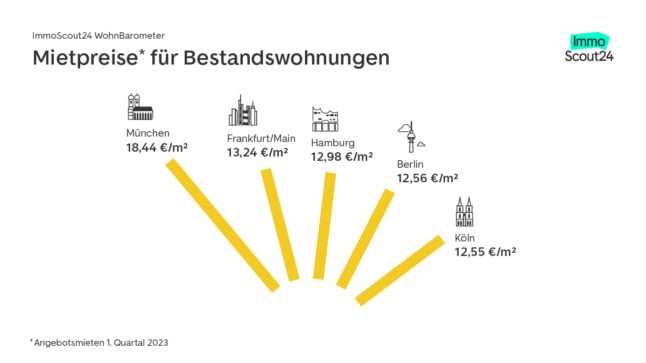
Munich
Germany’s most expensive city continues to live up to its name when it comes to renting. Here, asking rents for existing flats saw the second steepest rise, with movers asked to shell out a good 2.6 percent more in the first quarter of 2023 compared to the last quarter of 2022. The Bavarian capital has officially broken the €18 per square metre mark, with renters here paying an average of €18.44 per square metre for an existing flat.
The cost of renting a new-build also rose by an average of 4.3 percent over the same period, which people currently paying an eye-watering €22.30 per square metre on average for a contemporary Munich home.
Looking at the annual trends, it seems like Munich is set to retain its crown as by far the priciest place to rent in Germany. Compared to the first quarter of 2022, rents for existing flats have shot up by 11.6 percent and new-build asking rents have gone up by a dizzying 17 percent. That means the average cold rent – without bills or utilities – for a standard 70 square metre flat on Immoscout currently stands at an astounding €1,290.80 per month.
Hamburg
The Hanseatic city-state has always attracted an upmarket crowd, and these days a wealthy merchant’s income may be a prerequisite for moving there – just like in medieval times.
Along with Berlin, demand for flats in the Hamburg area has doubled since late 2019, putting huge pressure on the housing market and driving up rents significantly.
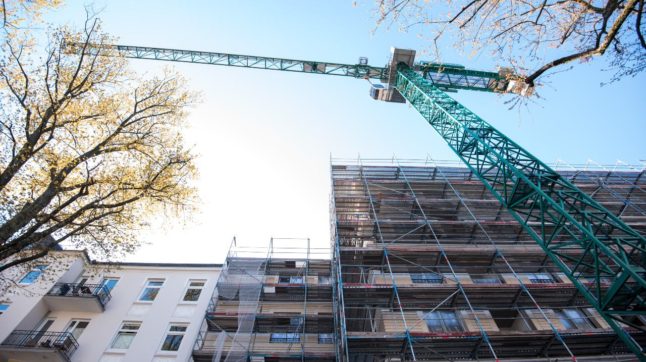
More recently, however, there haven’t been the kind of steep jumps in asking rents we’ve seen in places like Berlin and Munich. Between Q4 2022 and Q1 2023, rents on new-builds and existing properties only went up by around one percent.
However, taking a longer view reveals that rents are still on the rise in Hamburg, with a steep upwards curve over the past twelve months. In particular, rents for existing flats have gone up by 11.5 percent and are currently around €13 per square metre on average. On the new-build side of things, rents have gone up by around 8 percent and now average €15.20 per square metre.
Düsseldorf
The capital of North Rhine-Westphalia is a buzzing international city, but it has a reputation for being on the more affordable side of Germany’s metropoles.
Looking at the most recent trends in asking rents, there’s a clear upward trajectory – but at 1.5 percent more for existing flats and 2.8 percent more for new-build flats it isn’t the steepest increase in the world.
That said, the trend makes itself much more apparent when you look at what you might have paid for a flat in Düsseldorf in the first quarter of 2022 compared to 2023. These days, cold rents for a standard 70 square metre new build are almost €1,000 (€981) per month, while those renting an existing property around the same size will be shelling out around €820 per month before bills and utilities.
That’s a solid increase of around 11 percent on both existing flats and new builds within a year.
READ ALSO: What to know about mortgages and fees when buying property in Germany
Frankfurt am Main
Alongside Munich, Frankfurt is known for being one of Germany’s priciest cities, but things have cooled off on the housing market quite a bit lately.
Between the end of last year and the start of this one, asking rents did creep up slightly – but in the case of existing flats the price rises were less than one percent (0.5) and for new builds it was a relatively modest 2.3 percent.
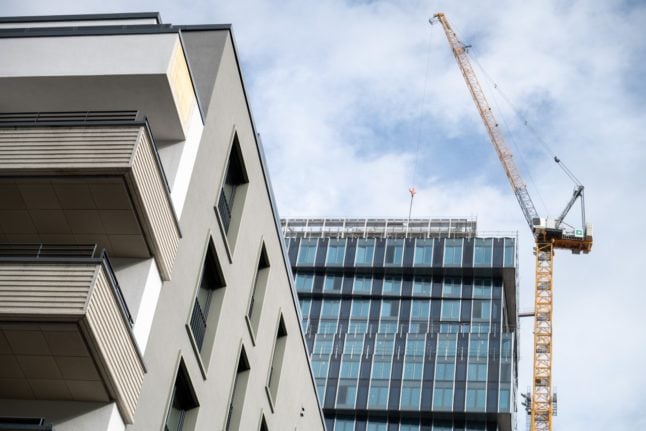
If you want to rent in Frankfurt these days, you can expect to shell out around €13.24 per square metre for an existing flat and just over €16 per square metre for a new property. For a standard 70 square metre apartment on Immoscout24, you’ll currently need to shell out around €930 in rent – before you’ve even paid for internet or utilities.
Cologne
Along with former eastern German cities like Dresden, the cathedral city generally comes out on the more affordable site of the German rental market – especially when compared with major metropoles like Frankfurt, Hamburg and Munich.
The latest asking rents in Cologne were pretty much on par with Berlin, with Immoscout24 putting the average for existing flats at €12.55 per square metre: in other words, just a cent less per square metre than a flat in the capital. However, new-builds in Cologne remain on the much more affordable side compared to Berlin. At last quarter’s asking prices, you could snap up one of these for around €14 per square metre per month.
Though asking rents have risen significantly in Cologne over the past year – existing flats are up by more than 12 percent and new-builds are up by almost 11 – things have plateaued a little since the end of last year.
In fact, rents for new-builds went up by 2.3 percent between Q4 2022 and Q1 2023, and rents for existing flats stayed pretty the same, with a drop of 0.1 percent.
READ ALSO: Ask an expert: Is now a good time to buy property in Germany?
Will rents keep going up this fast?
There’s been plenty of debate on how to solve Germany’s worsening housing crisis, with suggesting ranging from major construction projects to rent controls and even nationalising big swathes of the housing stock.
However, Immoscout24’s experts say not enough is being done to buck the trend. That’s partly because the war in Ukraine has driven up the cost of building significantly and hampered construction targets.
In addition, high interest rates are putting people off buying property and pushing more and more people into the rental market, meaning demand continues to massively outstrip supply.
“Politicians are called upon to shape realistic and effective framework conditions so that new construction remains economical despite the difficult market environment and affordable housing can be created,” said Tobias Hartmann, CEO of Scout24 SE, which operates Immoscout24.
“Germany needs a master plan for affordable housing that includes not only new construction but also the purchase of residential property,” Hartmann said.

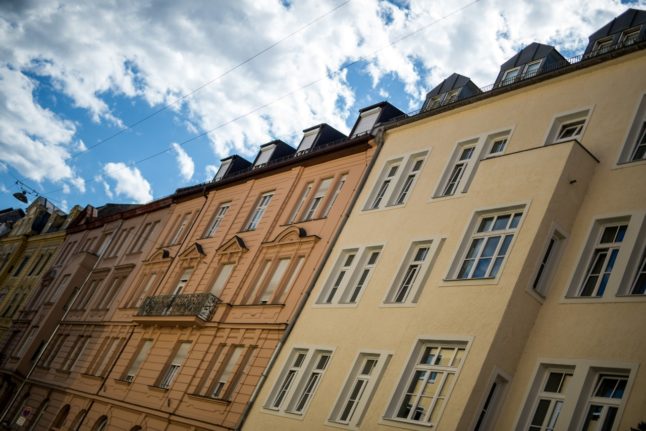
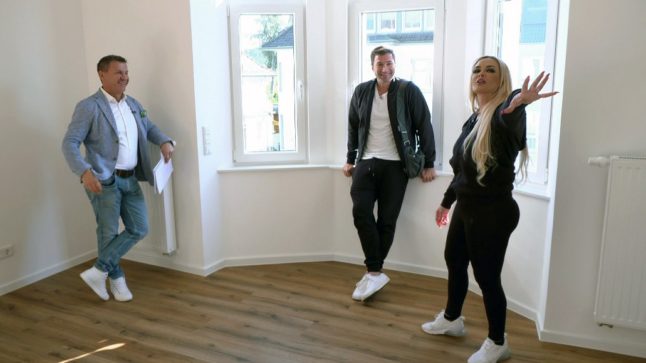
 Please whitelist us to continue reading.
Please whitelist us to continue reading.
Member comments